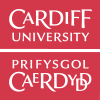27/03/20
Cancer Research & Genetics UK have donated £10k to Professor Andrew Sewell’s work at Cardiff University. His research group is focused on T-cell antigens and the receptors that recognise them. Cancer Research and Genetics UK?s donation will purchase a Leica M60 Stereomicroscope and Thermo BB15 CO2 Incubator. Both of these pieces of equipment will support the research group?s ongoing work looking for potential cancer vaccines, engineering T-cells against cancer and studying T-cells from patients who have undergone successful cancer immunotherapy.

Leica M60 Stereomicroscope
An important part of our work revolves around visualizing the molecular interactions that take place between T-cell receptors and molecular parts of cells infected with viruses or that have become cancerous. It is impossible to ?see? molecules using light, so we use high energy X-rays and a technique called X-ray crystallography. This requires that we crystallize the molecules we want to look at and transport them to Diamond Light Source (the UK’s synchrotron facility) where they are placed in a high energy X-ray beam. The way the atoms in the molecules scatter these X-rays can be used to build up an atomic structure of the molecule. We have produced molecular structures of more than 90 immune molecules and this structural analysis has given us an insight into T-cell function, viral escape mechanisms, mechanisms of autoimmunity, information on potential vaccines and on how the immune system can distinguish healthy cells from cancer cells.
The new microscope will streamline the process of crystal-harvesting. The speed of harvesting is known to impinge on the final resolution of the molecular image that can be obtained. As things stand, most of the crystals we harvest do not produce useful data. This microscope could reduce this failure rate.
Thermo BB15 CO2 Incubator, including a stacking stand
Growing immune cells requires that we mimic the situation inside the body in terms of oxygen:carbon dioxide ration and temperature. A new CO2 Incubator will provide increased capacity in the tissue culture laboratory. Unfortunately, a recent power cut resulted in the malfunction of an old but essential incubator. We do not have the funds to replace this incubator at this time due to the unforeseen nature of the breakdown. The new incubator will allow us to continue working on all our projects to the same capacity without risking adverse events by overloading the existing infrastructure. The stacking stand we will be able to increase the capacity without increasing the footprint of the equipment in the limited space we have available for tissue culture.